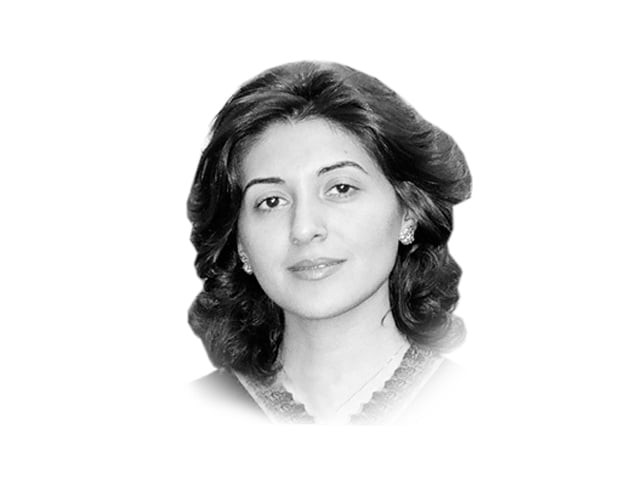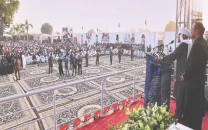Anti-West not a leadership quality
It is a common misperception in Pakistan that what we need to get ahead is ‘a leader who can stand up to the...

The difficulty arises when one examines Nato’s reasons for intervention. Notwithstanding the rhetoric of upholding democratic values and standing up for human rights, it is quite clear that but for Libya’s oil, the West would have issued statements but watched the rights violations from the sidelines. This is not to say, of course, that the uprising was imported, as was the case in Iraq where, though the population was terribly unhappy with Saddam, in 2003, the conditions for the Arab Spring had not yet manifested. Nato, it is quite safe to say, will intervene either to prop up monarchies and dictators that serve western interests in connection with oil or to effectuate regime change in countries where those interests are not being served. These interests may coincide with those of the local people up to the point of regime change. But what happens after that? Though there is much talk of not repeating the mistakes of Iraq, Libya will have its own set of complex challenges, tribal divisions and armed ragtag militia, to name a couple.
With a population of just six million, Qaddafi should have at least provided Libya with an infrastructure to match that of the oil-rich countries of the Gulf. Not that the Gulf countries have done their people justice, but at least they don’t need to leave the country to see a proper dentist, as some Libyans have testified. Qaddafi’s derision of capitalism and western democracy would have meant something if he had exhibited a better alternative. But his legacy is one big mess, in spite of the fact that when he took over in 1969, he was a charismatic colonel with broad appeal. While the Gulf countries relied on foreign expertise to build their infrastructure, Qaddafi wrecked existing institutions, abolishing all ranks above colonel in the military, as one example.
It is a common misperception in Pakistan that what we need to get ahead is ‘a leader who can stand up to the West’. Qaddafi often did stand up to the West. Towards the end of his rule, so did Saddam Hussein, as does Bashar al Assad of Syria. But this does not make them any less draconian or inept to govern their own countries. In fact, while political repression is common to both pro-West and anti-West dictators and monarchs, lacking infrastructure and economic repression is far more common in those countries where leaders have taken an anti-West stand. One of the primary reasons for this is the sanctions that are slapped on by western powers as a result.
Iran, for example, produced six million barrels of oil per day in the seventies. After the revolution, its production dropped to two million barrels per day. In the 30 years since, Iran has still not managed to reach pre-revolution production levels, with current oil production at about four million barrels per day. The main reason for this discrepancy is not the fact that Iran does not have oil to pump (it has the world’s fourth largest reserves) but that since its anti-West stance, international oil companies are not willing to invest there. Moreover, domestic expertise also left the country in droves after the revolution.
Thus, while western motives are born less of altruism and more of mercantilism, it is neither wise nor patriotic to take an overtly confrontational stand. Instead, we must be wary of demagogues and aspiring leaders who preach this line.
Published in The Express Tribune, August 26th, 2011.



















COMMENTS
Comments are moderated and generally will be posted if they are on-topic and not abusive.
For more information, please see our Comments FAQ